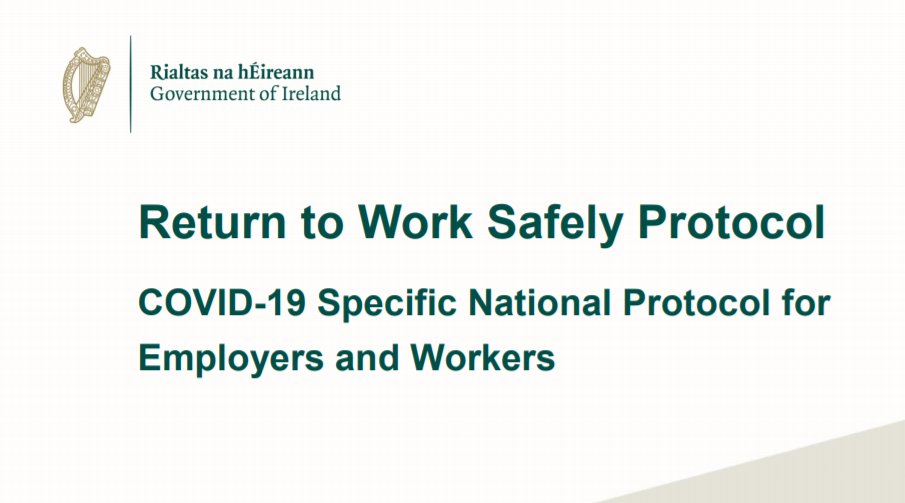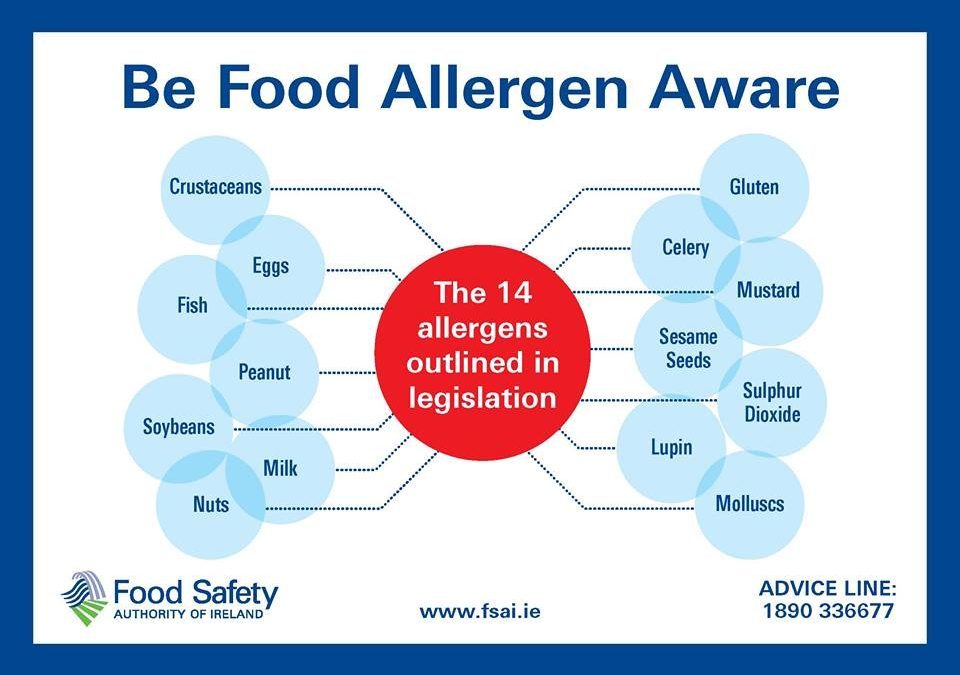Food Allergies: A Modern Epidemic!

ELearning – 6 Advantages for Employees & for Business
29/11/2016
Mandatory Training – A Pain in Ass? The Benefits of a Learning Management Systems (LMS)
10/01/2017Food Allergies: A Modern Epidemic!
Food allergies are without a doubt on the rise. Allergens have even been described as a modern epidemic! Elective elimination of certain food from the diet is very ‘on trend’, but a real food allergen can be life threatening. Allergic reactions occurs when the immune system mistakenly senses a harmless food as a threat and are potentially life threatening. In Ireland 5% of children under 2 years of age have food allergies. Many grow out of milk and egg allergies, therefore about 1-2% of adults have severe allergies and between 10-45% have food sensitivities and intolerance.
So, our grandparents didn’t seem to have any food allergies. This is because they eat more natural clean foods. Today we eat a lot more processed foods, often foreign to our bodies. They can contain food colour, preservative, additives, growth hormones, antibiotics, chemicals, stabilisers, toxins and GMO’s. Is it any wonder we’ve developed food allergies as our bodies struggle to cope?
Allergens became a major topic of debate in Ireland after a fatal allergic reaction to nuts in a Dublin restaurant. The allergic reaction was suffered by a teenage girl, Emma Sloan (14) in Dublin in Dec 2013. Emma went into anaphylactic shock from mistakenly eating a dish containing peanuts. A nearby pharmacy refused to provide an EpiPen (epinephrine injection) to Emma’s mother. Emma tragically died on the street on her way to hospital.
In December 2014, legislation was introduced meaning that now the 14 most common food allergens must be listed on food packaging or available in written format. This applies to restaurants, crèches, schools, hospitals or anywhere serving food. Many food establishment now list allergens on the menu too. There are 14 major allergens that must be declared in Ireland and the EU. They are as follows: Crustaceans such as prawns or shellfish, Eggs, Fish, Peanuts, Soy Beans, Milk, Nuts such as cashews or almonds, Celery, Mustard, Sesame, Sulphur dioxide or sulphites, Lupin and Molluscs such as clams, mussels or snails.
Adrenaline shots for those with food allergies.
In October 2015, it became legal to administer lifesaving adrenal shots in first response for dealing with food allergies by trained members of the public. This change came after campaigning by the family of Emma Sloan.

In early 2016 there was a shortage of these lifesaving injections. The pens generally have a shelf life of 18 months. But later in 2016, there was a major development in the availability of EpiPens. New laws will allow trained members of the public to administer EpiPens along with some other emergency rescue medicines. These medicines will be held at schools, workplaces and sports venues where staff can be trained on their use. This is very welcome news to those suffering from food allergies.
In March 2016, we saw an Indian restaurant owner in the UK found guilty of manslaughter and he was sentenced to six years imprisonment after a customer with a severe nut allergy died. This highlights the onus of compliance with allergen laws in the the food industry. The responsibility for food safety and compliance with food allergen laws lies firmly with the food business operators.
Thankfully it’s not all doom and gloom! It was fantastic to hear about the young Dublin lady who received 2 lifesaving injections by a trained staff member. Sarah Chambers in Hickey’s Pharmacy administered the life saving medicine in Oct 2016 after the girl had an allergic reaction to chocolate milk drink on Grafton St. in Dublin. It was reported that she made a speedy recovery in hospital afterwards. More and more first aid training courses are using EpiPen training aids. In the event of an emergency, first aiders will know how to administer these lifesaving injections.
Food Safety & Allergen Training
Food Safety training is a must for all food handlers. All new and refresher courses should include food allergens awareness training. Make sure you are compliant with Food Safety Laws and reduce risk to your customers.
View our Food Safety & Allergen Awareness Courses Here.
View our ONLINE Food Safety & Allergen Awareness Courses Here.
Contact us to discuss your training requirements.










